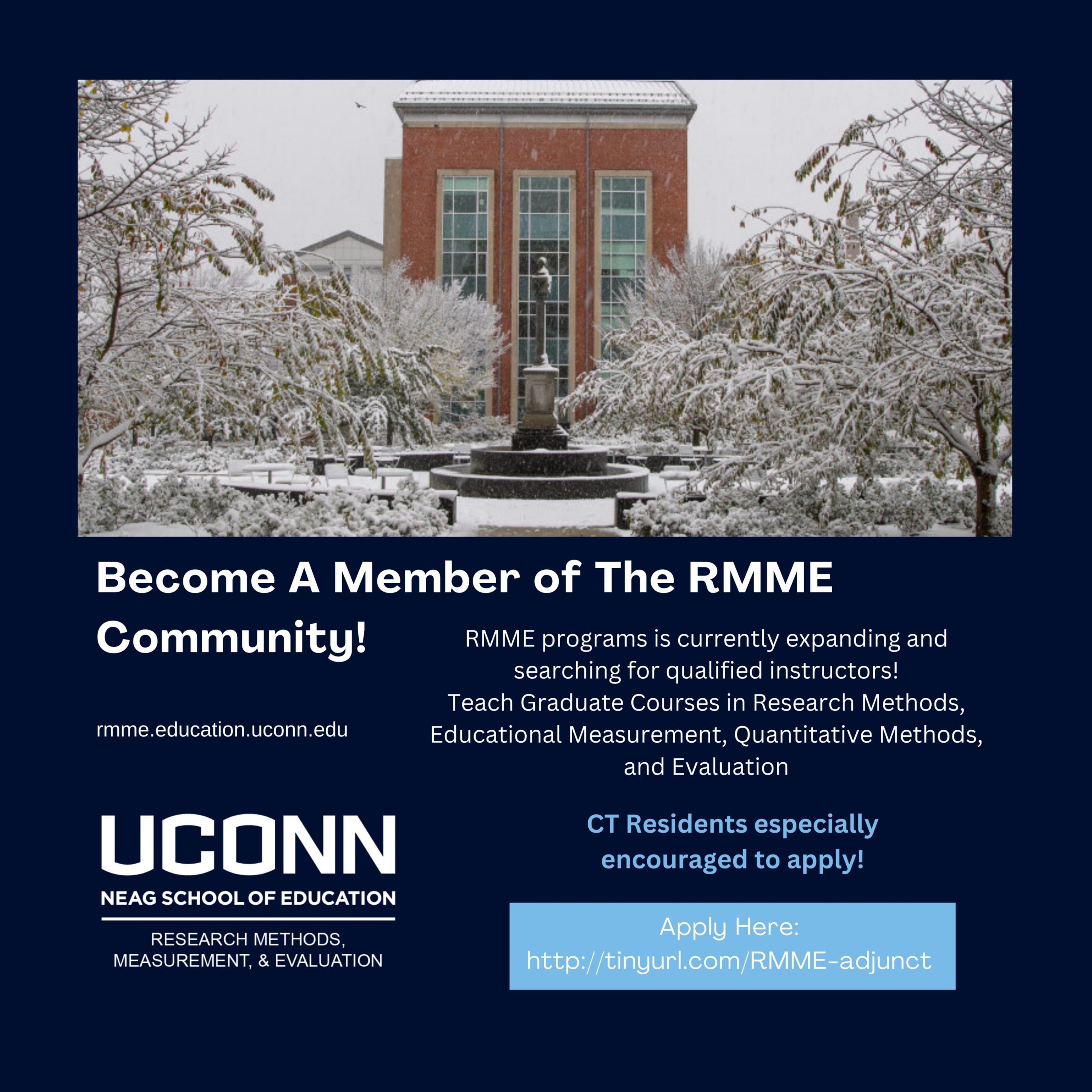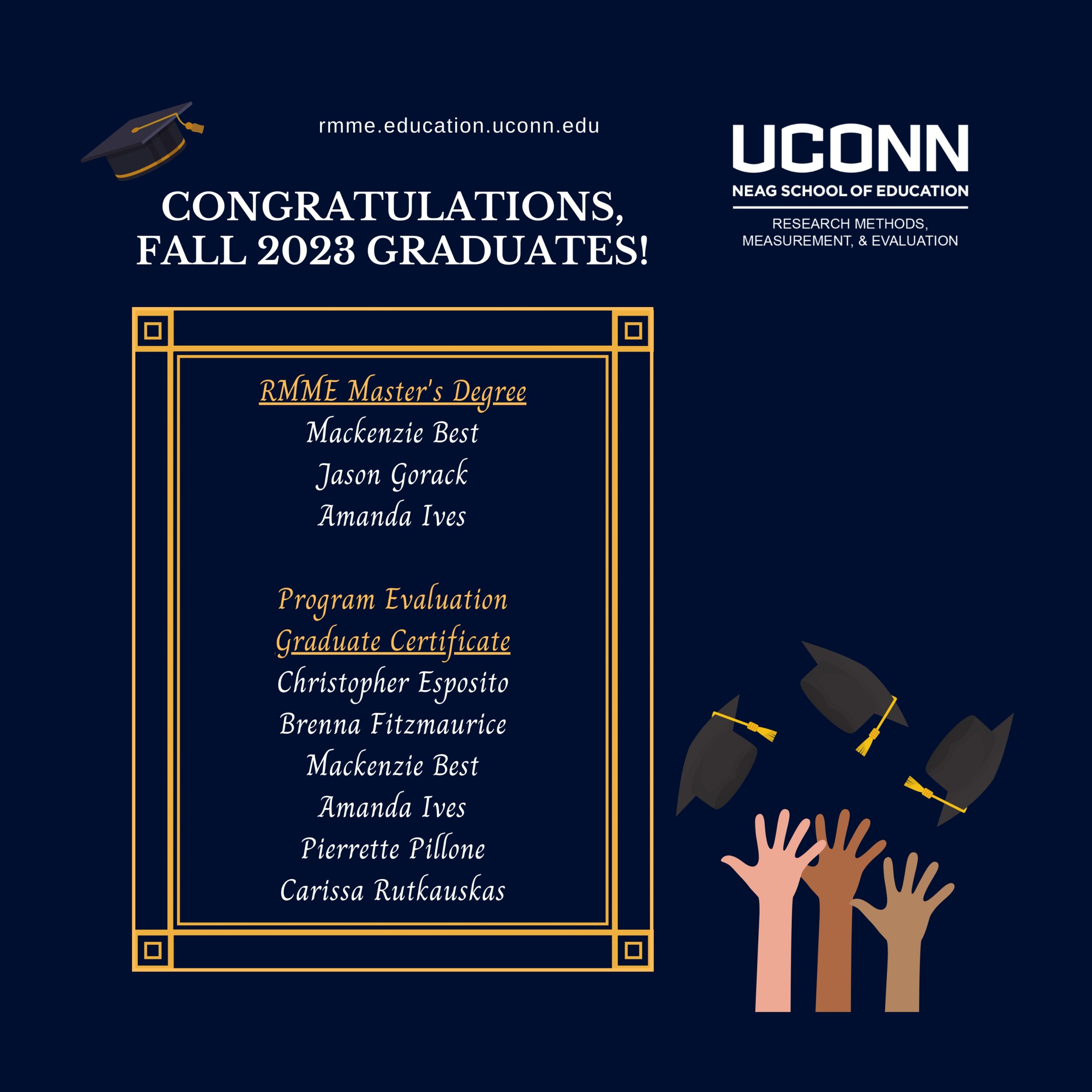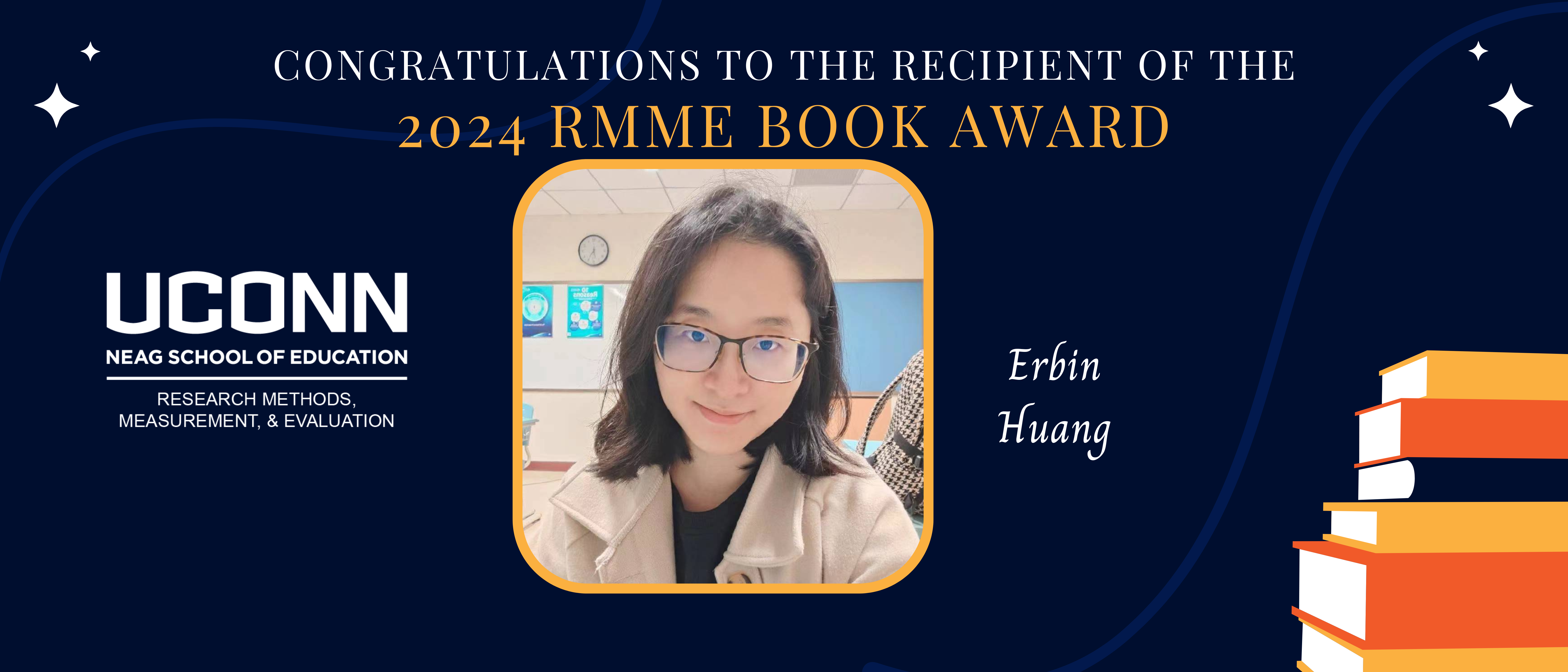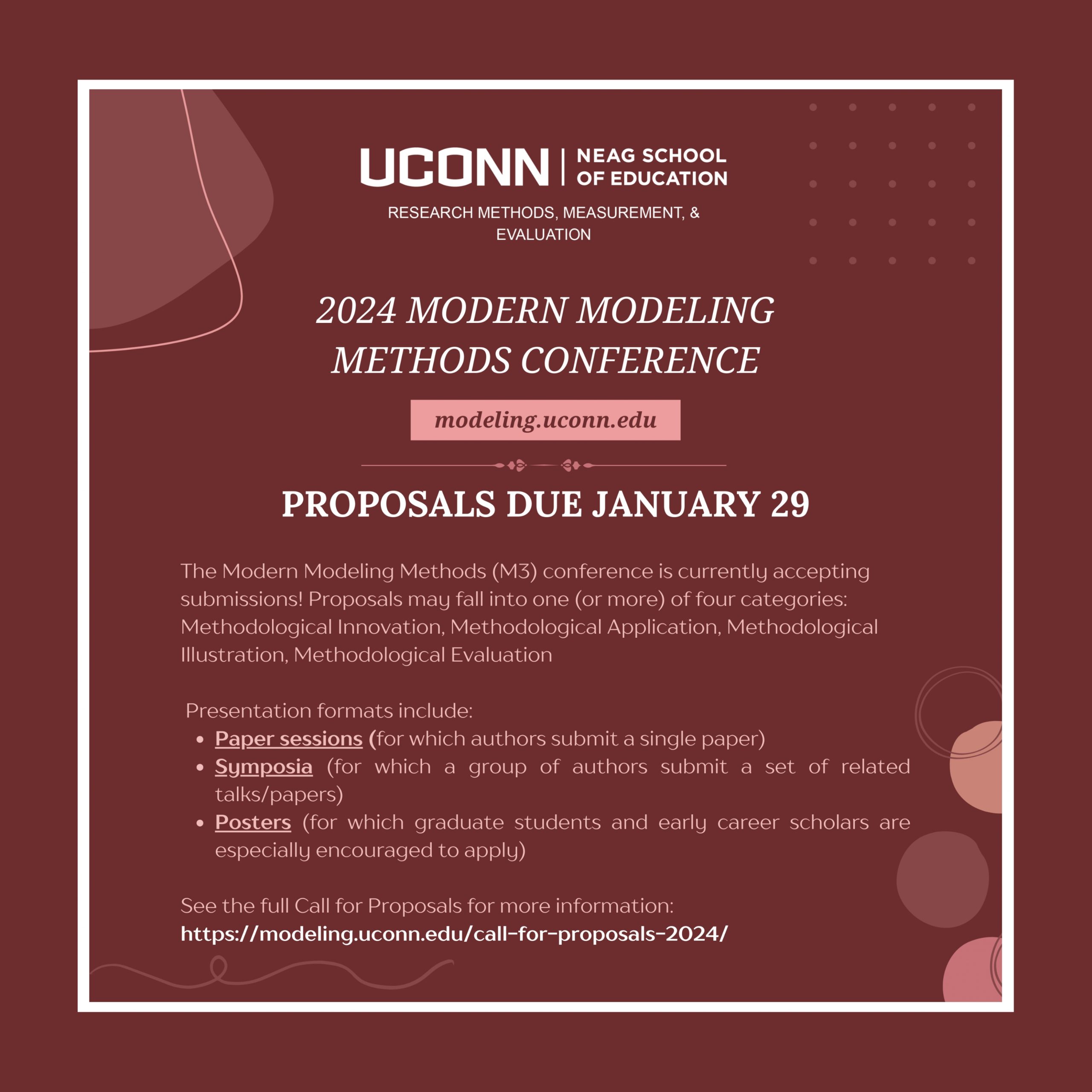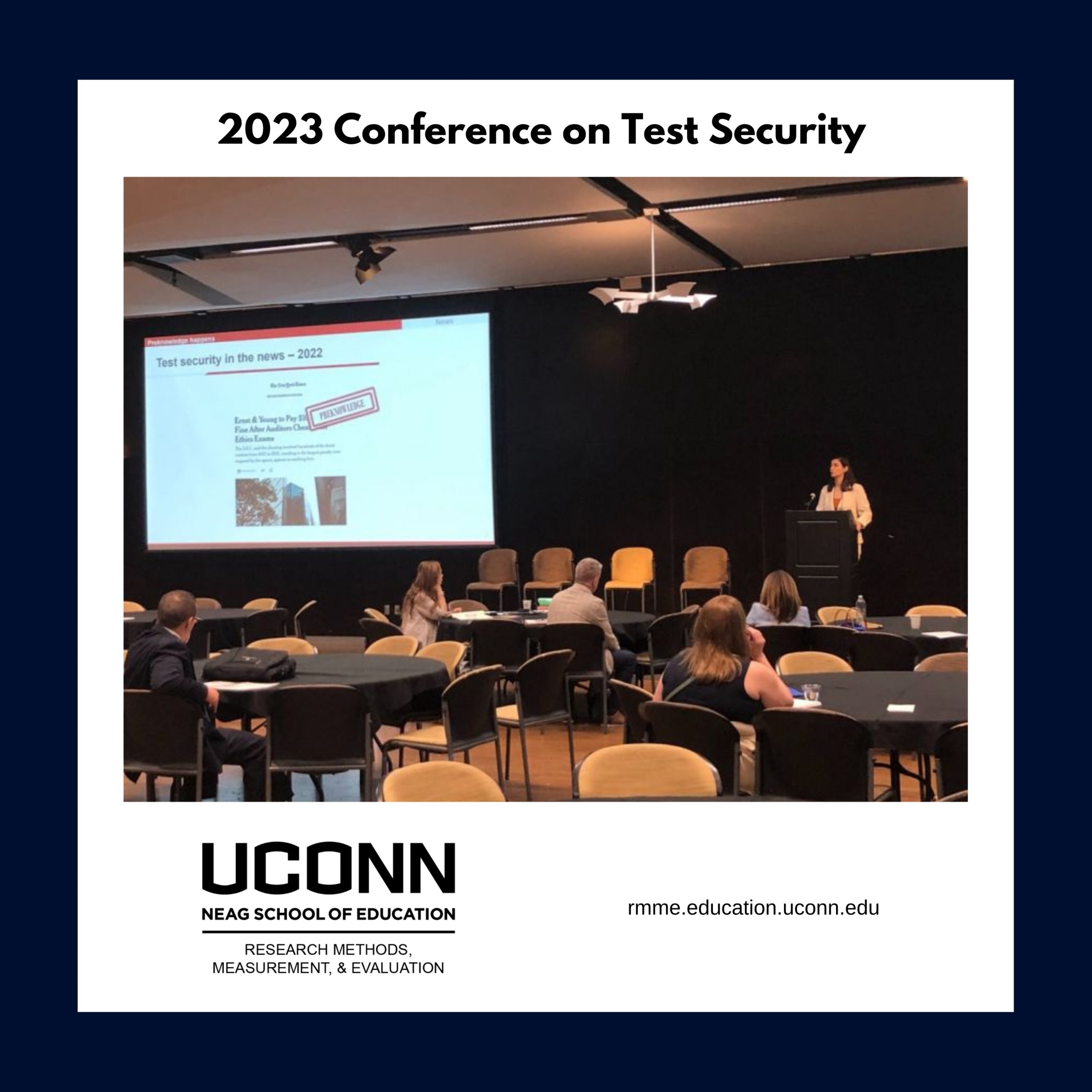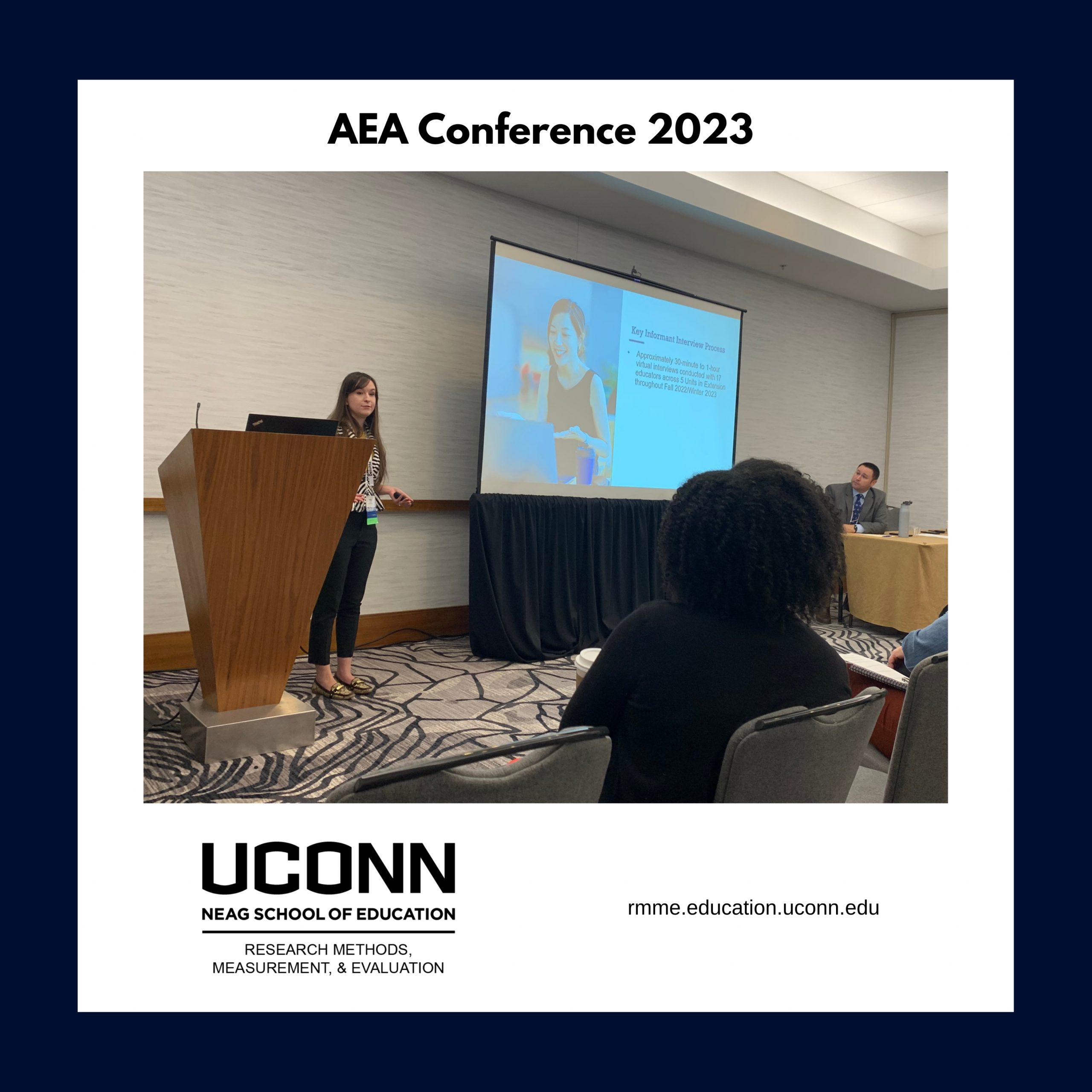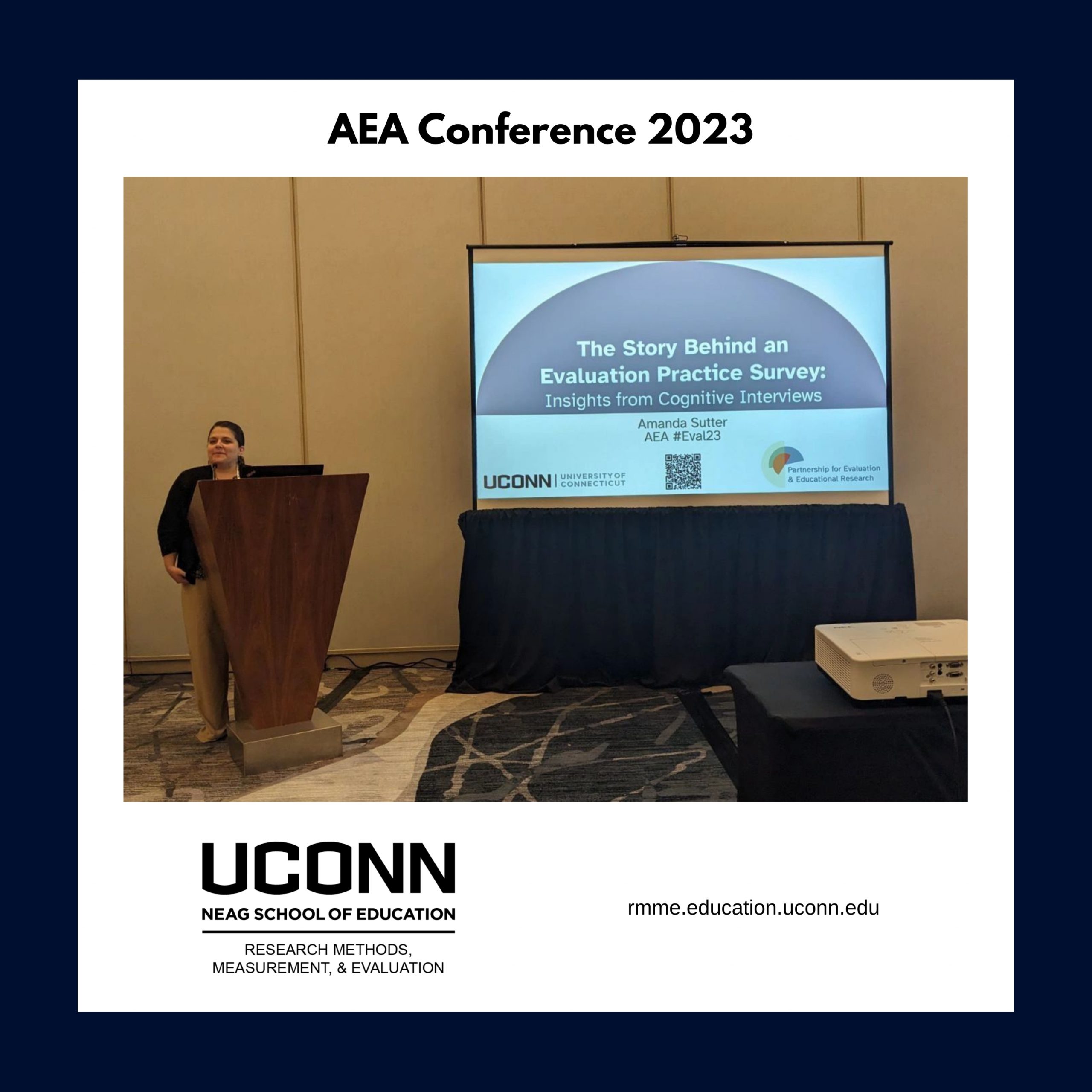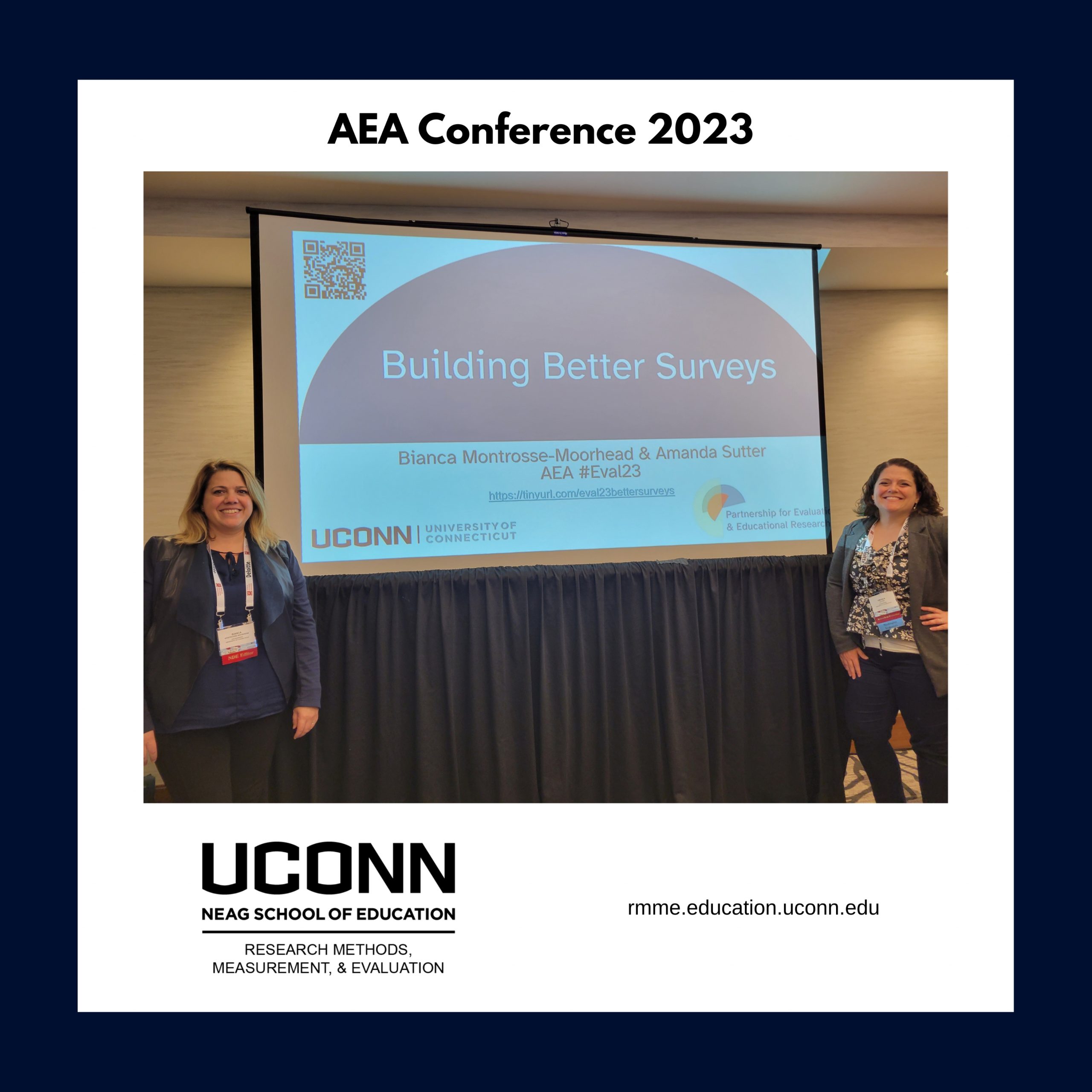Dr. D. Betsy McCoach (RMME Faculty member, Discussant), Amanda Sutter (RMME PhD Student, Presenter), Marcus Harris (RMME PhD Student, Presenter), Claudia Ventura (RMME PhD Student, Presenter), Faeze Safari (RMME PhD Student, Presenter), & Kirsten Reyna (RMME PhD Student, Presenter) present a symposium on “The Future of Educational Measurement” at NERA 2023. Congratulations on this excellent symposium, from the Research Methods, Measurement, & Evaluation Community!
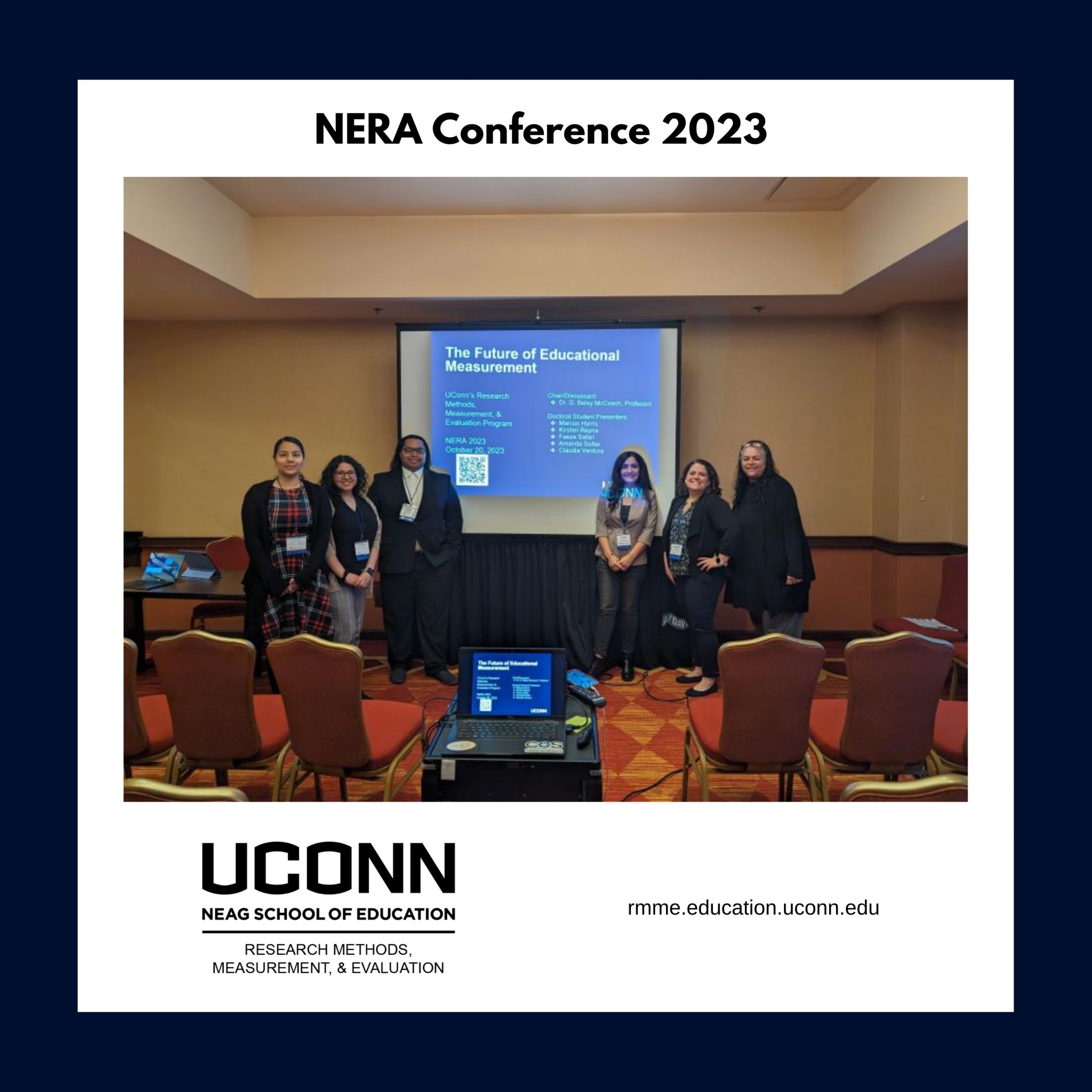
Symposium Chair/Discussant: D. Betsy McCoach
Symposium Presenters: Amanda Sutter, Marcus Harris, Claudia Ventura, Faeze Safari, & Kirsten Reyna
Symposium Abstract: Emergent measurement scholars provide their perspective on current issues and future directions in educational measurement. The four presentations focus on 4 critical areas: 1.) Equity and social justice, 2.) The context in which we operate, 3.) The rise of artificial intelligence, and 4.) Graduate training in educational measurement.
Symposium Presentations:
1) Context Matters
Amanda Sutter, Marcus Harris
2) Equity and Social Justice Issues and Values in Measurement
Claudia Ventura, Amanda Sutter
3) Exploring the Challenges and Potential of Artificial Intelligence in Educational Measurement
Faeze Safari, Kirsten Reyna
4) Transforming Graduate School Training: Advancing Measurement and Open Science
Marcus Harris, Kirsten Reyna
